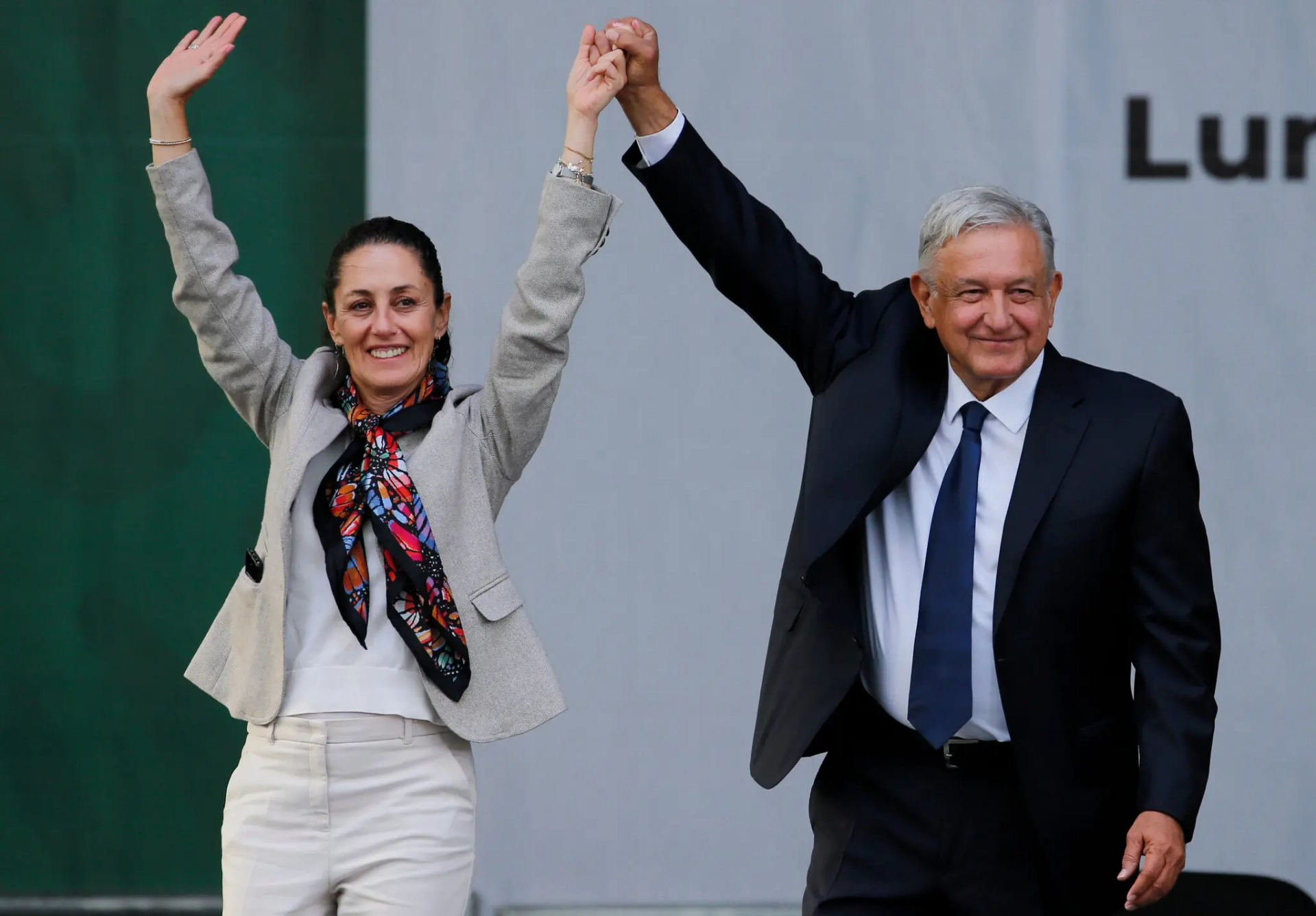Claudia Sheinbaum (Mexico City, 1962), scientist, academic at the National Autonomous University of Mexico (UNAM), political activist, and former head of government of Mexico City, is the candidate of the National Regeneration Movement (MORENA) for the presidency of Mexico. She will run in the general elections to be held in 2024.
The former head of government of the capital city has won the poll proposed by her party to choose its candidate for the next general elections and succeed the current president, Andrés Manuel López Obrador, in the presidency of the Republic during the next six-year term if, as the polls predict, she wins.
Claudia Sheinbaum faces a great challenge. This is undoubted. And to face it, she counts on her academic background and political trajectory. Regarding her academic background, it is important to mention that Sheinbaum studied for a degree in Physics and a master’s and a doctorate in Energy Engineering at UNAM, and did a fellowship at the University of California, in the United States. She has been a researcher at UNAM’s Institute of Engineering since 1995.
Regarding her political career, her first contact with political practice was developed in the student struggle at UNAM when, as a student of the Faculty of Sciences, she was part of the 1986-1987 movement in defense of public education and against the increase in student fees. It was not until the year 2000 that she accepted a position as Secretary of the Environment in the city government, then ruled by the current President of Mexico. It was at that stage that she forged a working relationship and political commitment with López Obrador, who relied on her in his first presidential campaign in 2006. After the elections were considered fraudulent, López Obrador established a civil resistance movement and asked Sheinbaum to take charge of the organization of the popular structure in defense of national assets (known as the Adelitas). In 2012, in the second campaign for the presidency, she was proposed for the Environment portfolio if the elections were won. However, the elections were lost to the PRI candidate, and the academic returned to her research work at UNAM. In 2014, she returned to the political arena after the founding of MORENA; in 2015 she ran for and won the mayoralty of Tlalpan, which she would occupy until 2018, when she went on to manage, after being elected, the head of Mexico City which she has been responsible for until 2023.
From her administration, we can extract some ideas about the profile of the former head of government. The academic, trained in physics and ecology, paid special attention to the environment and sought to expand the network of clean and sustainable public transportation (Metrobus, Trolleybus, bicycle lanes); consistent with the student demands of her youth, during her administration scholarships were granted to low-income students and a program was implemented to bring extracurricular training to marginalized areas: community training spaces known as Pillars. To the lights of this administration, we must add a shadow: in 2021 there was an accident on line 12 of the subway in which 27 people lost their lives. Although this line was designed and built during the previous administration, Sheinbaum’s administration was accused of not providing enough maintenance due to austerity policies.
In short, the trajectory of the candidate for the presidency of the United Mexican States gives us an idea of who is the woman who can assume the greatest political responsibility in the country. She is also the mother of two children: Mariana, currently a post-doctoral student at the Institute for Philosophical Research at UNAM, and Rodrigo, who studied Visual Arts at the UNAM and is dedicated to documentary filmmaking.
Many national and foreign media have echoed her status as a woman. Indeed, we should congratulate ourselves that after centuries of struggle (let us not forget that in 1791 Olympia de Gouges wrote the Declaration of the Rights of Women and of the Citizen) women have been occupying spaces of representation and political decision-making, and we should also congratulate ourselves that parity has been incorporated into the Mexican Constitution. It is to be hoped that her administration, should she win the elections, will be sensitive to the heartfelt demands of women and feminized bodies in continuity with her work as Head of Government of Mexico City. Although, from my point of view, it is not her condition as a woman that is relevant. There have been (and there are) other women occupying positions of political representation who are insensitive to gender issues. Let us think, for example, of Margaret Thatcher.
What is truly significant about Sheinbaum being a woman holding the highest office in the Republic is, foremost, that her career can be an example for women, for the young women of this country: Yes, we women can; yes, we women have the effective right (not only on paper) to exercise political representation. For all, and especially for those who suffer violence and conditions of labor, social and economic inequality, the young woman who was a member of the student movement of the eighties would have, if she were president, the possibility of implementing policies and plans for equality, inclusion programs and, fundamentally, programs against gender violence. These policies can be carried out by a president or a female president indistinctly; however, in the case of Sheinbaum, it is to be expected, because she herself has experienced sexist aggressions.
Indeed, it is surprising that critics of the presidential aspirant sow doubts about her capacity for free, responsible and committed agency by pointing out, in a characteristically misogynistic gesture, that she is nothing more than a puppet in the hands of the current president of the Republic. There is no doubt that Andrés Manuel López Obrador is a charismatic leader. With his retirement from political life, he will leave an important void in the leftist movement he founded and commanded from 2014 to date.
Today, after receiving the “baton of command”, Claudia Sheinbaum’s first challenge is to build, within the movement, a new leadership. That is to say, a leadership with its own stamp. Her greatest challenge, in the medium term, will be to lead the Republic based on the principles of this new leadership.
*Translated by Janaína Ruviaro da Silva from the original in Spanish.













